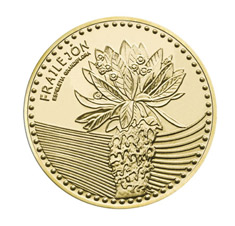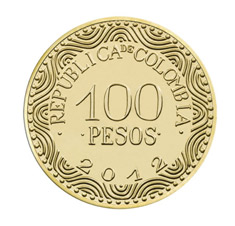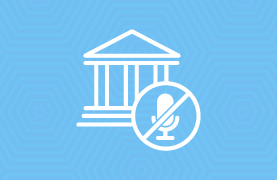100-Peso Coin
The scarlet macaw, the frailejón, and the spectacled bear are the three representative species of the Colombian biodiversity that will be present in the obverse (heads) of the new COP$200, COP$100, and COP$50 coins, which Banco de la República (the Central Bank of Colombia) will start circulating as of the second half of 2012. The designs for the obverse, created by the artists Johana Calle (COP$100) and José Antonio Suárez (COP$50 and COP$200), include a background of fine lines in high relief and the common and scientific names of each species.
The reverse (tails) of each coin, designed by José Antonio Suárez, shows the denomination in Arabic numerals (200, 100, and 50), and below the currency unit “PESOS,” the text “REPÚBLICA DE COLOMBIA” (Republic of Colombia), and the year of issue. In addition, the edge presents waves in high relief that allude to the movement of water, thus reaffirming the Banco de la República’s interest in promoting and protecting our natural resources.
Biodiversity and the new coins
The scarlet macaw (Ara macao), the new design of the COP$200 coin, belongs to the family of Psittacine parrots, certainly the most colorful of the entire Amazon. Unfortunately, in recent years, the destruction of its habitat and its capture for illegal trading has put it at risk of extinction. It has even disappeared from many of its native areas.
The frailejón (Espeletia grandiflora) is the characteristic plant of the South American páramos, only found in the Andes (the system of mountain ranges) of Venezuela, Colombia, and Ecuador. Five of the eight known species are found in the Cordillera Oriental (Eastern Mountain Range System) of Colombia.
The spectacled bear (Tremarctos ornatus), also known as the Andean or South American bear, lives exclusively in Andean humid forests with an annual rainfall of more than 1,000 mm (aka, perhumid zones). However, it can also be found in páramos and semi-arid areas with annual rainfall of around 250 mm. In Colombia, it is found along the three Cordilleras of the Andean Region: the Macarena, Baudó, and Darién serranías (mountain ranges). Nowadays, it is at high risk of extinction.
Main features of the new 100-peso coin
Obverse (heads)

Rim: Circular and in high relief, with a flat and plain surface.
Denticles: A succession of well-defined elements in high relief forming a concentric circle to the rim.
Field: Located in the upper semicircle of the coin. It is flat and shiny.
Inscription: “FRAILEJÓN” and in microtext “Espeletia Grandiflora” in high relief in the upper semicircle.
Image of the Frailejón: Located at the center of the coin. It is a design made with volume and fine details, with relief and high definition.
Fine designs: High-relief thin horizontal lines on the lower left side. Their distance widens on the right side.
Reverse (tails)

Rim: Circular and in high relief, with a flat and plain surface.
Denticles: A succession of well-defined elements in high relief forming a concentric circle to the rim.
High relief waves: lines in high relief in the form of waves, forming a circle.
Inscriptions: the texts “REPÚBLICA DE COLOMBIA” (REPUBLIC OF COLOMBIA) and the year of issue are in high relief. At the beginning and at the end of the text, there is a high relief point.
Denomination: the texts “100” and “PESOS” in high relief. At the beginning and at the end of the text, there is a dot in high relief.
Field: Located in the upper semicircle of the coin. It is flat and shiny.
Physical features of the new 100-peso coin
- Alloy: Brass-coated steel
- Weight: 3.34 grams
- Diameter: 20.30 millimeters
- Edge: 1.50 millimeters, flat, plain, defined
- Color: Golden

































































